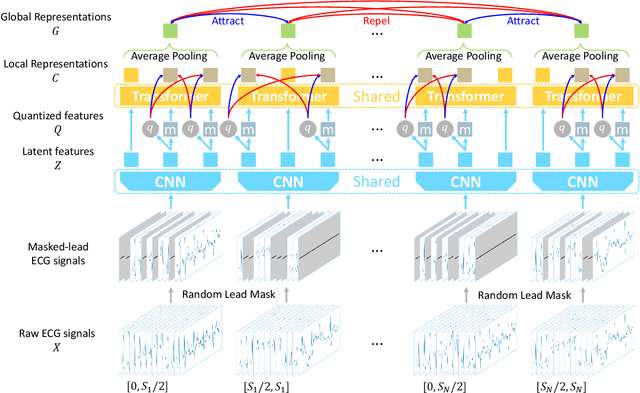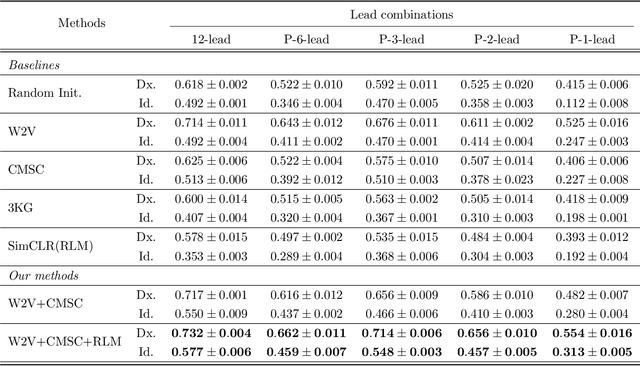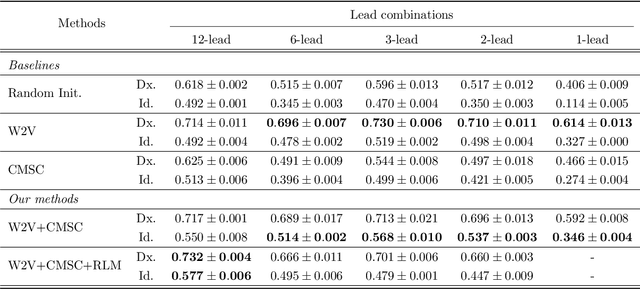Dong-gyun Hong
Lead-agnostic Self-supervised Learning for Local and Global Representations of Electrocardiogram
Mar 18, 2022



Abstract:In recent years, self-supervised learning methods have shown significant improvement for pre-training with unlabeled data and have proven helpful for electrocardiogram signals. However, most previous pre-training methods for electrocardiogram focused on capturing only global contextual representations. This inhibits the models from learning fruitful representation of electrocardiogram, which results in poor performance on downstream tasks. Additionally, they cannot fine-tune the model with an arbitrary set of electrocardiogram leads unless the models were pre-trained on the same set of leads. In this work, we propose an ECG pre-training method that learns both local and global contextual representations for better generalizability and performance on downstream tasks. In addition, we propose random lead masking as an ECG-specific augmentation method to make our proposed model robust to an arbitrary set of leads. Experimental results on two downstream tasks, cardiac arrhythmia classification and patient identification, show that our proposed approach outperforms other state-of-the-art methods.
 Add to Chrome
Add to Chrome Add to Firefox
Add to Firefox Add to Edge
Add to Edge